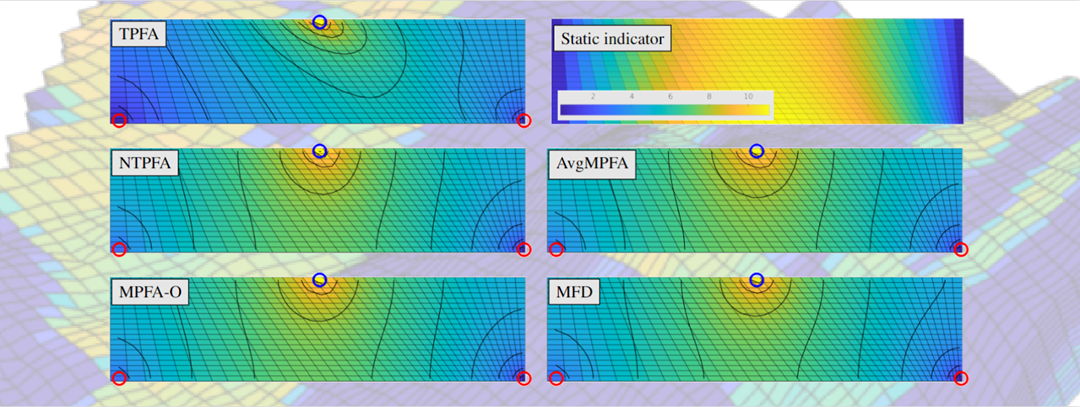Motivation
Reservoir architectures are intricate, shaped by post-depositional processes like erosion, faulting, and folding acting on pre-depositional geology. This complexity results in diverse fault networks, influencing fluid conduits or baffles in carbonate and sandstone formations. Reservoir modeling faces the dual challenge of reconstructing subsurface structure and facilitating numerical simulation. Reconciling those objectives is particularly challenging in structurally complex reservoir in which fault array and fracture networks exert an overriding control on petroleum trapping and production behaviour. For such reservoirs, numerical simulation and modelling, including mechanical effects, still pose a challenge.
Various forms of unstructured grids have been proposed in recent years to provide more accurate modelling of structurally complex reservoirs. The standard discretization method used in reservoir simulators is unfortunately inconsistent on such grids and may introduce significant errors into the numerical flow solution. Geomechanical analysis, on the other hand, is run using finite-element solvers that typically need conformal meshes with tetrahedral/hexahedral elements and may be challenging to combine with flow solvers formulated on grids consisting of polytopal grids.
Research activities
- Develop indicators that can be used to assess the impact of inconsitency errors before flow simulations are conducted.
- Develop technical recommendations, guidelines and best-practices on which specific discretization schemes (and gridding methods) are most suitable in a fully implicit formulation and for coupling multiphase flow to geomechanics.





